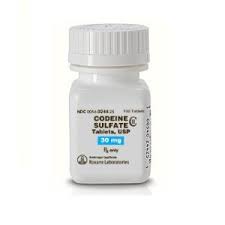codeine for dogs: Uses, Dosage, and Safety Considerations
Introduction to codeine for dogs
Codeine, a medication known for its pain-relieving properties, is occasionally prescribed for dogs under specific circumstances. In this blog post, we will delve into the topic of codeine for dogs, exploring its uses, dosage guidelines, potential side effects, and safety considerations. Whether you’re a concerned pet owner or a veterinarian seeking information, this comprehensive guide aims to provide valuable insights into the use of codeine in canine medicine.
Understanding codeine for dogs
Codeine belongs to the opioid class of drugs and is primarily used as an analgesic (pain reliever). It works by binding to opioid receptors in the brain, reducing the perception of pain. In veterinary medicine, codeine may be prescribed to manage mild to moderate pain or as a cough suppressant for dogs.
Uses of Codeine in Canine Medicine in regards to codeine for dogs
Codeine is commonly used in dogs for postoperative pain management, pain relief associated with injuries or musculoskeletal conditions, and as a cough suppressant for certain respiratory conditions. However, it is important to note that codeine should only be administered to dogs under the guidance and prescription of a veterinarian.
Dosage and Administration in light of codeine for dogs
Codeine dosage for dogs varies based on factors such as the dog’s weight, overall health, and the specific condition being treated. Only a veterinarian can determine the appropriate dosage and frequency of administration for a dog. It is crucial to follow the prescribed dosage strictly and never administer codeine to a dog without professional guidance.
Potential Side Effects and Precautions in regards to codeine for dogs
While codeine can provide pain relief for dogs, it is essential to be aware of potential side effects and take necessary precautions. Dogs may experience sedation, constipation, decreased heart rate, respiratory depression, or gastrointestinal upset when taking codeine. Additionally, codeine should not be used in dogs with certain medical conditions or those taking certain medications. It is imperative to inform the veterinarian about the dog’s medical history and provide a complete list of medications before administering codeine.
Safety Considerations and Monitoring in regards to codeine for dogs
Ensuring the safety of dogs receiving codeine involves proper monitoring. It is essential to observe the dog for any adverse reactions or changes in behavior. Regular check-ups with the veterinarian will help assess the dog’s response to codeine and determine if any adjustments to the treatment plan are necessary. Discontinuing codeine should be done gradually under veterinary guidance to prevent withdrawal symptoms.
Alternatives and Complementary Therapies in regards to codeine for dogs
In some cases, alternative pain management options may be considered for dogs, such as nonsteroidal anti-inflammatory drugs (NSAIDs), physical therapy, or complementary therapies like acupuncture. These alternatives can provide effective pain relief with potentially fewer side effects.
Conclusion
Codeine can be a beneficial medication in managing pain and cough in dogs when used responsibly and under veterinary supervision. Understanding the uses, dosage guidelines, potential side effects, and safety considerations associated with codeine is crucial for ensuring the well-being of our canine companions. Always consult a veterinarian for guidance, as they will be able to provide the most appropriate treatment plan tailored to the specific needs of the dog. By prioritizing the health and safety of our furry friends, we can make informed decisions regarding the use of codeine in veterinary medicine.
In conclusion, codeine can be a valuable tool in managing pain and cough in dogs when used appropriately and under the guidance of a veterinarian. Understanding the uses, proper dosage, potential side effects, and safety considerations associated with codeine is crucial for ensuring the well-being of our canine companions. Responsible pet owners should always consult with a veterinarian before administering codeine to their dogs and strictly follow their prescribed guidelines.
While codeine can provide relief, it is important to be aware of potential side effects and take necessary precautions. Regular monitoring and open communication with the veterinarian are essential to assess the dog’s response to codeine and make any necessary adjustments to the treatment plan. It is also worth exploring alternative pain management options or complementary therapies that may be suitable for dogs, in consultation with the veterinarian.
By prioritizing the health and safety of our dogs and working closely with veterinary professionals, we can make informed decisions and ensure the optimal use of codeine for pain management and cough suppression in our beloved pets.


